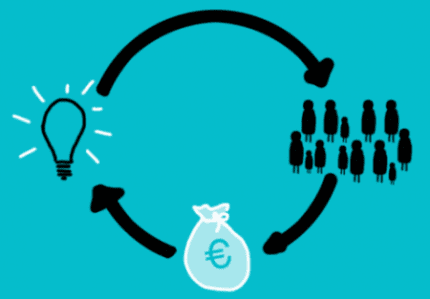2. Get help!
The key to a good research proposal, and researchers maintaining their sanity, is good support from peers and colleagues. I personally am from mostly a primary care background, and this was where I came across my research question. Although I have done some stints as a hospital pharmacist, I’m much more at home in a GP practice or a community pharmacy. However, the lack of research into unlicensed medicines in any setting meant that I felt an obligation to have the broadest scope possible. I’m also passionate that as a profession we work more together, since ultimately many of our issues (and research questions) are the same, but that’s another story!
The first person I approached for help therefore was Lindsay. Lindsay is almost my opposite. She did her pre-reg in community pharmacy but feels much more at home in the hospital setting, where she’s spent most of her career. Having another pharmacist as my co-lead investigator, who brings a different perspective but understands the issues around unlicensed medicines as much as I do, has been extremely valuable. It has reassured me that what the project is trying to achieve is important and that the way we are going about the project is robust. Pharmacist colleagues can help you gauge whether your project is interesting or not, how important your research question and may offer you initial thoughts on the practicalities of answering your question and who might be able to help.
I was also very lucky being based in a University where there are people readily at hand such as Scott, who could help me through the initial stages. However, if you’re not in a University setting, there still may be more support available than you think.
My first point of call after Scott and Lindsay was the NIHR Research Design Service (RDS), which is an excellent place to start for anyone no matter what your setting. They provide free, impartial, expert advice on designing research. They can help you decide your methodology, identify funding streams for your research and signpost you to other resources. You get allocated an adviser (mine was Jan) who will stay with you up until the point of submission.
I met up with Jan just once, and then did everything over email. The first job was to familiarise Jan with the project, which I did by sending her through my write-up of my literature review and research question. This then allowed her to advise me about the funding proposal. At that point I had already identified the Clinical Pharmacy Research Grant as my potential funding source, so I could also send her that information to advise me on writing the application. Jan also signposted me to the local Patient and Public Consumer Panel to allow me to start thinking about Patient and Public Involvement (PPI) in my project (see later tip). Researchers within the University who might be interested in supporting me were also highlighted by her, and that is how Lyn came on board.
In the hospital setting, the RDS will be able to put you in touch with people from your Local Clinical Research Network (LCRN) which also includes a primary care stream for those of you working in primary care. The LCRNs are also appointing Community Pharmacy Research Champions (I fulfil this role in the North East and North Cumbria LCRN) and so as these roles develop these will hopefully be a source of support to those wanting to do research from a community pharmacy setting.
Useful links
NIHR Research Design Service
NIHR Local Clinical Research Networks


